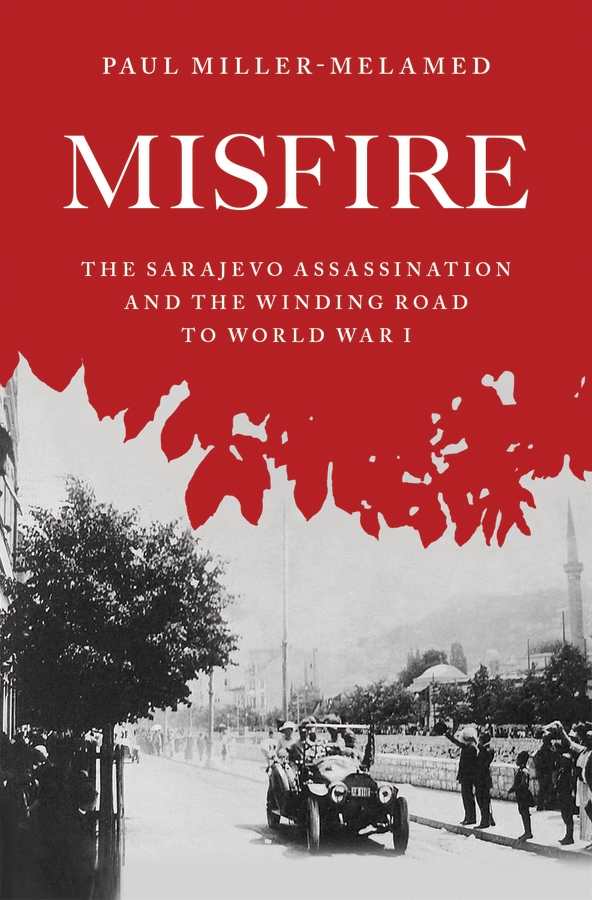It looks like you've stumbled upon a page meant to be read by our code instead of viewed directly. You're probably looking for this page.
Misfire
The Sarajevo Assassination and the Winding Road to World War I
Paul Miller-Melamed examines the origins of World War I in his historical survey Misfire.
Popular history suggests that World War I began when a Bosnian Serb, Gavrilo Princip, shot Archduke Franz Ferdinand in Sarajevo in June of 1914. However, Miller-Melamed argues that this oversimplified, romanticized view of history obscures the truth about the assassination—and about the other events that launched “the war to end all wars.”
The book distinguishes itself by paying special attention to the difficulties inherent in its subject matter, including the many conspiracies and romantic myths about the archduke’s assassination. It tackles popular stories, as of the circumstances that brought Princip to that fateful street corner (he did not stop for a sandwich, as some sources claim), and of whether or not war was truly inevitable as soon as Princip pulled the trigger.
In focusing on Princip, Miller-Melamed states, history overlooks more important, less easily summarized sources of conflict—like the Bosnian Crisis, a diplomatic uproar caused by Austria-Hungary annexing Bosnia-Herzegovina against Serbia and Russia’s wishes, which fueled Slavic youth movements willing to use violence to improve the lives of their fellow citizens. Indeed, a few assassin’s bullets did not change the course of history: the truth is more “mundane” than this. Miller-Melamed credits posturing politicians with bringing war and mass death to their nations, and notes that careless planning, last-minute changes in itineraries, and luck combined to give leaders the chance to make such decisions.
An engrossing examination of how World War I began, how it is remembered, and the differences between the two, Misfire does not complicate the story of World War I’s origins; rather, it serves as a reminder that history is always more complicated than its mythmakers and storytellers suggest.
Reviewed by
Eileen Gonzalez
Disclosure: This article is not an endorsement, but a review. The publisher of this book provided free copies of the book to have their book reviewed by a professional reviewer. No fee was paid by the publisher for this review. Foreword Reviews only recommends books that we love. Foreword Magazine, Inc. is disclosing this in accordance with the Federal Trade Commission’s 16 CFR, Part 255.
